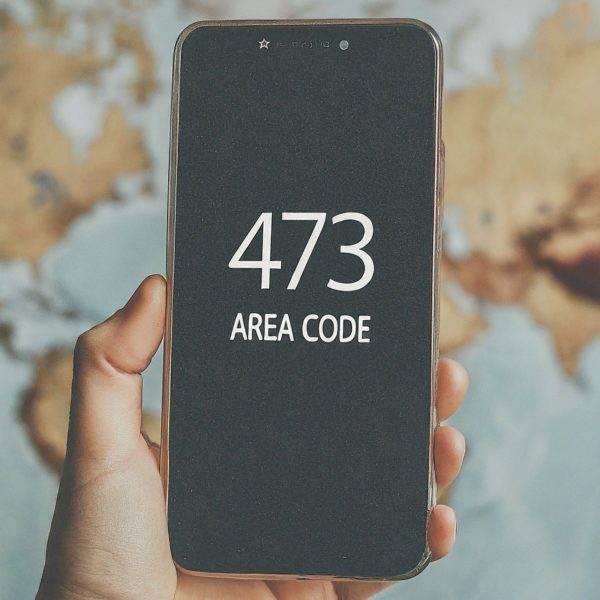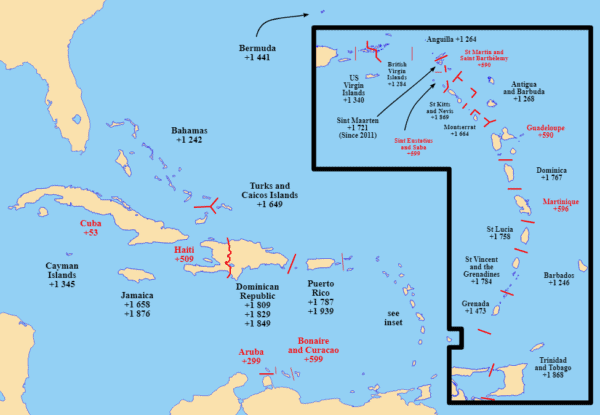In today’s connected world, receiving phone calls from unfamiliar numbers has become an everyday occurrence. While many of these calls are harmless, others are part of a growing wave of spam and scam activities targeting individuals worldwide.
One of the first clues you have when you receive an unknown call is the area code, and knowing which area codes to be wary of can save you time, frustration, and even money.
This article dives deep into five area codes you should never answer, explaining why they are often associated with scams and what steps you can take to protect yourself from unwanted calls.
1. Area Code 473 (Grenada, Carriacou, and Petite Martinique)

One of the most notorious area codes in the scam world is 473, which covers the Caribbean island of Grenada and its surrounding territories. This area code has been linked to the infamous “one-ring scam,” which preys on the curiosity of individuals.
How the Scam Works:
You receive a missed call from a number with the 473 area code. The call rings just once or for a very brief moment, hoping you’ll return the call out of curiosity. When you do, you’re connected to a premium-rate phone number, where you’re charged exorbitant rates, often without realizing it.
These calls are designed to trick individuals into thinking the missed call might be from someone they know or a legitimate organization. In reality, the charges pile up quickly, and by the time you notice, you’ve already lost a significant amount of money.
How to Protect Yourself:
- Avoid returning missed calls from numbers you don’t recognize, especially if they’re from unfamiliar area codes like 473.
- Use a caller ID app to identify potential scam numbers before answering.
2. Area Code 809 (Dominican Republic)

Another Caribbean area code that’s often abused by scammers is 809, which belongs to the Dominican Republic. Scammers use this area code to run several types of scams, including the one-ring scam and other variations where the caller pretends to be a business or family member in distress.
Common Scams Involving 809:
- Emergency Scams: Scammers will call pretending to be a family member in trouble, such as being in jail or needing money for medical treatment. They urge the victim to wire money immediately, taking advantage of emotional distress.
- Business Scams: Some calls from 809 area code numbers claim to be from reputable companies or government agencies, tricking individuals into providing sensitive information or making payments for fake services.
These scams are particularly deceptive because the 809 area code is often mistaken for a domestic U.S. area code, causing individuals to drop their guard.
How to Protect Yourself:
- If you receive a call from an 809 number and the caller claims to be a family member in distress, always verify the information by contacting the individual or another family member directly.
- Never send money or give personal information over the phone to someone you don’t know or haven’t verified.
3. Area Code 268 (Antigua and Barbuda)

Scammers frequently use 268, the area code for Antigua and Barbuda, to carry out various phone scams targeting U.S. and Canadian residents. Like other Caribbean area codes, 268 is often involved in the one-ring scam but is also used for a broader range of fraud schemes.
How the Scams Work:
- One-Ring Scam: Similar to the 473 area code, callers ring once and hope you’ll call back, leading you to be charged for international premium-rate calls.
- Lottery and Prize Scams: Scammers may call from a 268 number claiming you’ve won a lottery or a sweepstake but require you to pay fees or taxes upfront before collecting your “winnings.”
The international nature of these scams makes it difficult for authorities to track down the culprits, and once money has been wired or paid, it’s nearly impossible to recover.
How to Protect Yourself:
- If you receive a call from the 268 area code offering lottery winnings, hang up immediately. Remember, legitimate lotteries and contests will never ask for upfront payments to claim a prize.
- Be cautious of any unsolicited calls from unfamiliar area codes, particularly those outside of the United States.
4. Area Code 876 (Jamaica)

876, Jamaica’s area code, is another hotspot for phone scams. Scammers from Jamaica often use this area code to target individuals in North America, running several notorious schemes designed to trick people into parting with their money or personal information.
Common Scams Involving 876:
- Lottery Scams: One of the most common scams from this area code involves a caller claiming you’ve won a Jamaican lottery, often the “Mega Millions,” and need to pay fees or taxes to receive your prize.
- Sweepstakes Scams: Callers may pose as representatives from well-known sweepstakes, such as Publishers Clearing House, and ask for payment to cover taxes or administrative fees before delivering the supposed prize.
- Impersonation Scams: Some scammers pretend to be law enforcement or government officials, intimidating victims into paying fines or legal fees over the phone.
Scammers using the 876 area code have become skilled at manipulating individuals, often targeting the elderly or vulnerable populations with high-pressure tactics.
How to Protect Yourself:
- Never give out personal information, such as your Social Security number, credit card details, or bank account numbers, to anyone who calls unexpectedly.
- If you receive a suspicious call from an 876 number, hang up and report it to the relevant authorities.
5. Area Code 284 (British Virgin Islands)

Another international area code commonly used in scams is 284, which belongs to the British Virgin Islands. The scams originating from this area code often involve fake businesses, investment opportunities, or claims of unpaid debts.
Types of Scams Linked to 284:
- Business Scams: Scammers might call pretending to be from a legitimate business, offering investment opportunities or claiming that you owe money for a product or service. These calls often pressure victims to make payments immediately.
- Debt Collection Scams: Callers from the 284 area code may claim to represent a debt collection agency and insist that you pay a debt you don’t owe. They might use aggressive language and threaten legal action to scare you into paying.
Scams from the 284 area code are often highly organized, with the scammers using convincing tactics to pose as legitimate businesses or government agencies.
How to Protect Yourself:
- If a caller claims you owe money, ask for written proof of the debt before making any payments. Legitimate debt collectors will provide this without hesitation.
- Never make hasty financial decisions based on a phone call from an unfamiliar number, especially one from an international area code.
General Tips for Avoiding Scam Calls:
In addition to avoiding the five area codes mentioned above, there are some general practices you can follow to protect yourself from phone scams:
- Don’t Answer Unknown Numbers: If you don’t recognize the area code or number, let it go to voicemail. Legitimate callers will leave a message.
- Use Call-Blocking Apps: Many mobile providers and third-party apps offer call-blocking services that can automatically screen or block known spam numbers.
- Don’t Share Personal Information: Never give out sensitive information like your Social Security number, credit card details, or bank account numbers over the phone unless you’ve verified the identity of the caller.
- Report Scam Calls: If you receive a scam call, report it to your phone carrier, the Federal Trade Commission (FTC), or other relevant authorities. This can help prevent others from falling victim to the same scam.
Conclusion
Scammers are constantly evolving their tactics, and phone scams using international area codes remain a significant threat. By knowing which area codes to avoid, such as 473 (Grenada), 809 (Dominican Republic), 268 (Antigua and Barbuda), 876 (Jamaica), and 284 (British Virgin Islands), you can protect yourself from becoming a victim of these fraudulent schemes.
Always be cautious when answering calls from unknown numbers, and never provide personal information or make payments over the phone without verifying the legitimacy of the caller. With vigilance and the right precautions, you can safeguard yourself from phone scams and the financial and emotional distress they cause.
 Gearfuse Technology, Science, Culture & More
Gearfuse Technology, Science, Culture & More


